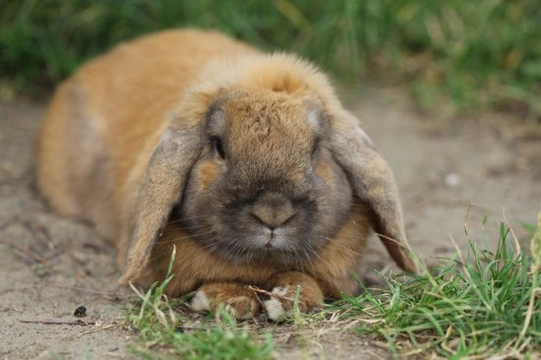
Ten tips for keeping your rabbit happy and healthy for life
Rabbits are a popular pet for people of all ages, and their popularity has increased over recent years as the modern phenomenon of keeping rabbits indoors as house pets has become more widespread. Whether you keep your pet rabbit indoors or outdoors, rabbits are sensitive animals that require a significant amount of thought and care spent on their welfare and daily management. If you already keep rabbits or are just researching whether or not they might make a good pet for you and your family, read on to learn about the ten most important elements of keeping pet rabbits happy, healthy and safe.1. Provide enough roomSmall, cramped hutches and living conditions are not suitable for keeping rabbits, and it is important to make sure that your rabbit has enough room in their hutch to stand upright, stretch out, turn around and move about freely. A hutch of six feet long by two feet wide and deep is the bare minimum size required to keep two rabbits happily, so make sure you have enough room in the garden or yard before planning your purchase! Rabbits also need to be able to run and hop about on a daily basis, either inside of the house or in a specially constructed rabbit run.2. Feed a good dietRabbits have sensitive digestive systems that are always working, and as well as feeding a complete and balanced diet to your rabbits, they also need to be able to graze. This means providing an outdoor area of safe, fresh grass for them to go out on, or feeding hay supplementally in the house or hutch. Rabbits love fresh greens, vegetables and many types of fruit, and it is a great idea to supplement your rabbit’s main diet with these things- but take care not to overdo it!3. Remember that rabbits love companyRabbits simply do not thrive living alone, and it is important to make sure that your rabbit has at least one rabbit friend as their companion. It used to be popular to keep one rabbit and one guinea pig together, but rabbits really need companionship from their own species, and so guinea pigs are no longer considered to be a suitable hutch-mate for rabbits! Remember that un-neutered rabbits of opposite sexes will almost certainly breed, and that un-neutered rabbits of the same sex might fight. Which leads us neatly onto tip number four:4. Spay or neuter your rabbitUnless you have thoroughly researched the breeding of rabbits and have made an informed decision that you wish to breed from your pets, have your rabbits spayed or neutered at the earliest available opportunity. The phrase ‘breeding like rabbits’ came into being for a very good reason, and even if you only keep one male and one female rabbit together, you may soon end up with many more kits than you can re-home or comfortably manage.5. Ensure that your rabbit is adequately entertainedRabbits living together provide companionship and entertainment for each other, but this may not be enough on its own. Make sure that your rabbits get enough variety in their day-to-day lives, have plenty of toys and things to entertain them, and get to play outside or in different environments regularly.6. Keep your rabbit cleanKeeping your rabbit, his hutch and all of his equipment clean is vital to keeping your rabbit fit, healthy and comfortable. Cleaning out the hutch once a week is not enough; you should remove droppings, old food and soiled bedding from the hutch on a daily basis. This is particularly important in the summer months, when rabbits can be at risk from fly strike.7. Vaccinate your rabbit and have them health checked regularlyRabbits are susceptible to a range of potentially life-threatening conditions, many of which can be avoided by means of good preventative care and vaccinations. Your rabbit’s teeth will also need regular checking and potentially trimming by your veterinary surgeon, and you should budget to have your rabbit health checked twice a year as standard.8. Guard them from predatorsRabbits that are kept outdoors in hutches or spend time outdoors in runs can be at risk from predators such as foxes, and even domestic dogs or occasionally cats! Ensuring that your rabbit’s hutch is raised off the ground and fox-proofed adequately is a vital part of protecting your rabbit from predators, as is ensuring that they are well supervised when outside in their runs.9. Handle with careLearn the correct way to handle your rabbit, how to pick them up without causing them harm and how to ensure that they do not startle when you approach them. Teach your children about the right way to handle your rabbits as well, and it should go without saying but is worth mentioning anyway; never pick your rabbit up by the ears!10. Plan for a long, healthy lifeRabbits never used to be considered as a particularly long-lived pet, and a rabbit that lived to older than five years used to be something of a rarity! Fortunately, as our understanding of rabbits and the care that they require has increased exponentially in recent years, rabbits now commonly live to over ten years old in good health when well taken care of. Do not plan on getting a rabbit as a temporary pet for a couple of years for yourself or your children; plan for your rabbits to live to old age, and ensure that you can take care of them adequately for the duration of their lives if they do!



